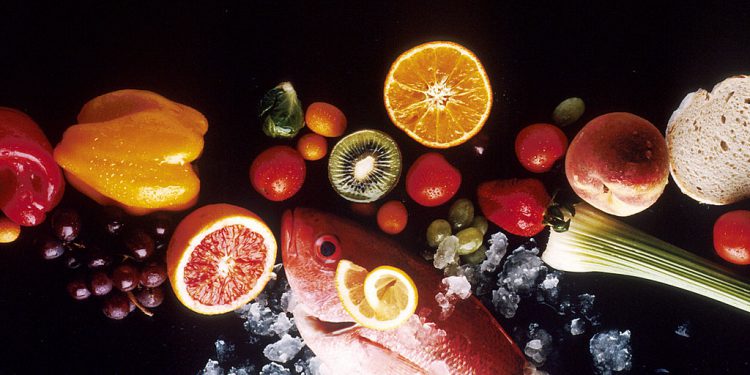How valid is the prospect of a unifying food label scheme addressing all the human rights implications of consumer choices?
Access to information, particularly around these choices, is a human right and one we’re going to explore further in future.
In the meantime, we’re happy to take it from the founder of an early startup dedicated to clearly labelling the carbon footprint of food products.
Video
- What’s the connection between Buckminster Fuller and the power of consumers to save the planet?
Alberto Saavedra agrees that widening the brief to capture all relevant human rights information is both workable and very much in demand.
His initial plan, for a business called Earth Accounting, was influenced by the renowned American futurist and pioneering environmental activist Buckminster Fuller
Alberto Saavedra explains, “The idea of Earth Accounting was that a consumer would scan a barcode and instantly get sustainability information about a product they were thinking of buying, that they trusted.
“Consumption represents 60 per cent of the global economy”
“Wouldn’t it be nice if you could get the carbon footprint of a product if you just scanned the barcode? And help to stop the climate crisis by buying products that have a lower carbon footprint?
“That information is available but not to consumers at the point of purchase.
“Unfortunately, life is what happens when you’re making other plans and I had an unexpected health issue. That was seven years ago and it took me a couple of years to recover.
“The idea was ahead of its time, but there’s still a lot of trends that point to Earth Accounting happening and I am talking to people who are interested in that idea.
“The original idea started with Buckminster Fuller. One of his disciples, who was a friend of mine, had this idea that Buckminster Fuller conveyed to him that we live in a spaceship.
“Planet Earth is a spaceship and if we do not maintain it we will essentially die in space. This concept is the heart of Earth Accounting if you wish, and it started with Buckminster Fuller.
“But you know this spaceship is driven by the economy and consumption represents 60 per cent of the global economy.
“Consumers are actively being disarmed of their power at the moment”
“The decisions consumers make when they buy are driven by information and these billions of decisions can have a serious impact on the sustainability of the economy, if they’re given information that is trustworthy and effective.
“Everybody agrees with the ability of consumers to move markets in the right direction and that they are actively being disarmed of that power at the moment.
“There’s an increasing amount of information that’s available. The point is to make the information available, which is vast, and easily understandable at the moment consumers make a purchase decision.
“When we say consumers, we mean everyone, citizens, workers, investors, you name it.
“But the information has to be trusted and that’s where monitoring comes in. We filed a couple of patents for that. If somebody challenged the information that would start a process of investigation, like crowd-sourced monitoring.
“One idea involved an information co-operative. You have non-profit organisations and you have corporations. In between there’s co-operatives.
“The idea of an information co-operative is that it would help filter the information that was more trusted by the members.”
If it’s something you’d like to get behind please say so across your social media networks, and make sure the Food Systems Summit decision makers know about it. We’re using the hashtag #FriendlyFoodLabel and we are @GlobalQuota if you want to loop us in. The Food Systems Summit on twitter is @FoodSystems and @unfoodsystems on Instagram.























